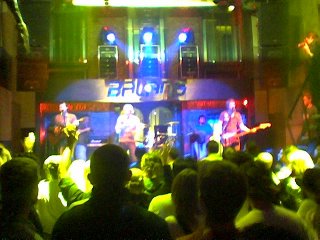"Turkey’s Protestant Christian minorities experienced fresh harassment this past week from both security police and the judiciary, along with an attempt by vandals to set on fire one local church, reports the Christian news agency Compass Direct (CD).
Last Sunday, November 27, members of the Agape House congregation in Samsun, a city along the Black Sea coast, were disquieted by a large, white minibus parked in front of their church as they came to morning worship services.
Church members suspected someone behind the van’s darkly tinted windows was using a video camera to film everyone entering the church.
The apparent filming continued after the service concluded, when church leaders checked the van’s license plate and confirmed it was registered to security police headquarters. Pastor Orhan Picaklar promptly called the police and demanded an explanation.
Two police officers soon arrived on the scene, one in uniform and the other a security official. Apologizing and urging the pastor to "cool down," the officers promised to remove the van immediately.
"Under what law are you doing this?" Picaklar asked them. "Why are you taking these recordings? By chance are you trying to harass us?"
Despite police promises, the van remained parked in front of the church building until 6 p.m., when some of its occupants, who were frequenting a nearby coffee shop, returned and drove off.
Located in the city’s Atakum district, Samsun’s Agape House has just become the third Protestant church granted formal “association” status by the Turkish authorities. A year ago the mayor had vowed he would never allow the congregation, now numbering 35, to open a church there."
Meanwhile, in the resort city of Antalya along the Mediterranean coast, unknown vandals tried to set afire three windows of the St. Paul Cultural Center in the early morning hours of November 28.
According to the Rev. James Bultema, an American pastoring the English-speaking congregation at the facility, a neighbor woman across the narrow alley heard flames crackling outside her window at 1:40 a.m. Calling the fire department, she quickly woke up her husband and son, who with a water hose and buckets managed to douse the flames before firemen arrived 20 minutes later.
"If they hadn’t gone right to work, much more damage would have been done," Bultema said, noting that the building has wooden ceilings. "As it was, about US$1,100 damage was done."
Bultema said the arson attempt appeared to be an amateur job by the assailants, who from the street could only access the three ground-floor windows of Paul’s Place, the center’s coffee shop. "Three windows were set afire, but only one was really burning," he said.
Opened initially as a coffee house and prayer chapel in 1999, St. Paul Cultural Center was the first new Christian congregation in Turkey to gain government recognition as an official "association" in August 2004. Both English- and Turkish-language congregations use the office facilities and garden, worshiping in the second-floor sanctuary."
APD - Turkish Authorities Harass Protestant Communities (02.12.2005)
.jpg)

.jpg)


